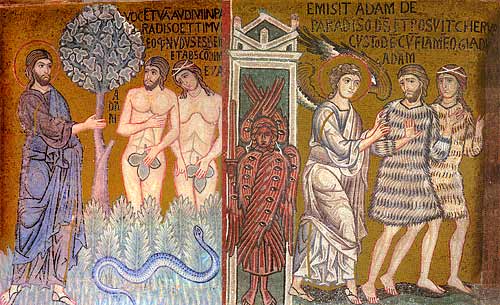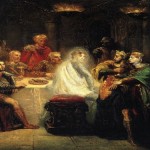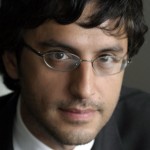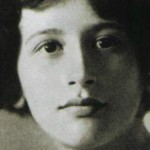I come from Colorado Springs, a conservative town. I go to school at a liberal law school in the northeast. As such, I get swamped with political rhetoric from the left and right, and much of it is seething. Like those around me, I often fall into the trap of partisanship. The self-congratulation that comes from condemning a political rival is delicious, but it has consequences, the worst of which is my assumption about people on the other side. I think of them not merely as stupid and ignorant, but also wicked. In addition to my being right and their being wrong, I’m also a better person than they are.
W.H. Auden offers a corrective to this view. In the “Vespers” section of his poem “Horae Canonicae,” he examines the two archetypal political temperaments. The first is the one Auden himself identifies with—the Arcadian. He gets the term from the region of Greece that inspired pastoral poetry yearning for the idealized past. The Arcadian respects the ancient wisdom, and is convinced that everything today is decaying. The Arcadian’s anti-type is the Utopian. He looks forward to the shining society of reason and virtue. He strives to move out of the shadows of past ignorance and into the dawn of a new world.
Like Auden, I’ve always identified with the Arcadian. Perhaps this has more to do with pessimism than politics, but I nonetheless view Utopians with suspicion. Don’t they realize that dreams of perfect societies are naïve? Are they really arrogant enough to brush away the past without learning from it?
Although Auden might agree with my sentiment, he avoids these petty prejudices in “Vespers.” The poem opens with Auden, representing Arcadia, meeting his anti-type. They have nothing in common, and it’s awkward: “Neither speaks. What experience could we possibly share?” Things don’t improve much when they walk through town and see a lamp in a storefront window: “I observe it is too hideous for anyone in their senses to buy: He observes it is too expensive for a peasant to buy.”
An Arcadian may defend this exchange—Auden upholds the finer things, and expects even simple objects to be well-made. The Utopian, on the other hand, views the lamp as a mere tool, and makes a self-righteous remark to brag about how much he empathizes with poor people. The next line, however, tips the scale the other way: “Passing a slum child with rickets, I look the other way: He looks the other way if he passes a chubby one.”
Rather than setting himself as the wiser of the two, Auden shows an area where the Utopian sees more clearly than he does. This pattern repeats throughout the poem. Each observes the same thing, and derives something different from it. At the end, Auden suggests this is not coincidence. Instead of being opponents who talk past each other, there is a kinship between them. Auden says that the meeting is a: “[R]endezvous between accomplices who, in spite of themselves, cannot resist meeting to remind the other (do both, at bottom, desire truth?) of that half of their secret which he would most like to forget.”
This has resonances with Christian thought, and our view of the cross. Christianity—which embraces both Eden and the New Jerusalem—needs the insight of both the Arcadian and the Utopian. Auden argues that bringing both sides together,
“[Forces] us both, for a fraction of a second, to remember our victim (but for him I could forget the blood, but for me he could forget the innocence)/
on whose immolation (call him Abel, Remus, whom you will, it is one Sin Offering) arcadias, utopias, our dear old bag of a democracy, are alike founded”
This robustly-realized faith, in turn, is necessary for society to operate. As Auden concludes: “[W]ithout a cement of blood (it must be human, it must be innocent) no secular wall will safely stand”
I don’t mean to say that political views don’t matter, or that everybody is equally right. But it is important to remember that both temperaments are necessary for a fully-formed Christianity. Rather than shunning these impulses in others, we should try to find the nugget of truth in them. We should all look back to Eden, and forward to New Jerusalem.
[Image of the Garden of Eden from Wikipedia]
















